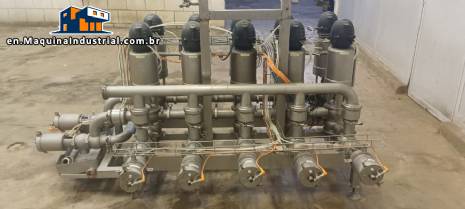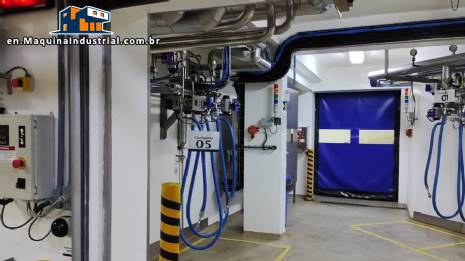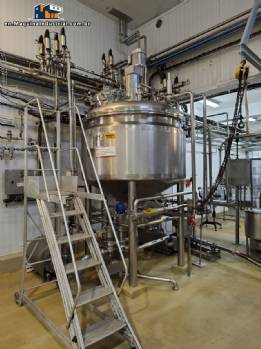A valve cluster is an automated set of sanitary valves installed in an organized and compact manner to control the flow of liquids in industrial process lines.
Clusters are configurable depending on the process, but typically include:
1. Single-seat valves (SSV):
For simple flow control. Used when there is no risk of cross-contamination.
2. Mixproof valves (double-seat):
Allow two liquids to flow in adjacent lines without the risk of mixing. Ideal for simultaneous processes: product and CIP, for example.
3. Check and diverter valves:
Used to prevent product backflow and to divert flow.
4. Valves with pneumatic actuators:
Automated to operate via a control system.
5. Sensors and feedback units:
Inform the valve position (open/closed) to the automation system.
Valve clusters are widely used in industrial processes that require high hygiene standards, precise flow control, and efficient automation. Below, we list the main sectors and their typical applications:
- Food and dairy industry: Clusters are used in the processing of milk, yogurt, cream, cheese, UHT milk, and other dairy products. They allow for the safe separation of raw and pasteurized products, as well as integration with CIP systems for automatic cleaning.
- Beverage industry: They are used in production lines for juices, soft drinks, mineral water, iced teas, and energy drinks. Clusters enable quick flavor or formula changes without cross-contamination and with high production yields.
- Food industry: For more viscous products, such as sauces, concentrates, sweets, and creams, clusters ensure flow control in sensitive processes, often in conjunction with heating or pasteurization systems.
- Cosmetics industry: Used for handling and packaging shampoos, lotions, creams, and other liquid or semi-solid products, ensuring sanitary safety and process traceability.
- Pharmaceutical industry: Valve clusters are used in sterile environments for handling active liquids, injectable solutions, syrups, and other sensitive products, where contamination control and automation are crucial.
They are also commonly used in the production of cleaning and personal care products, such as liquid soaps, detergents, and other chemicals, offering precise control of batches and product routes. |






